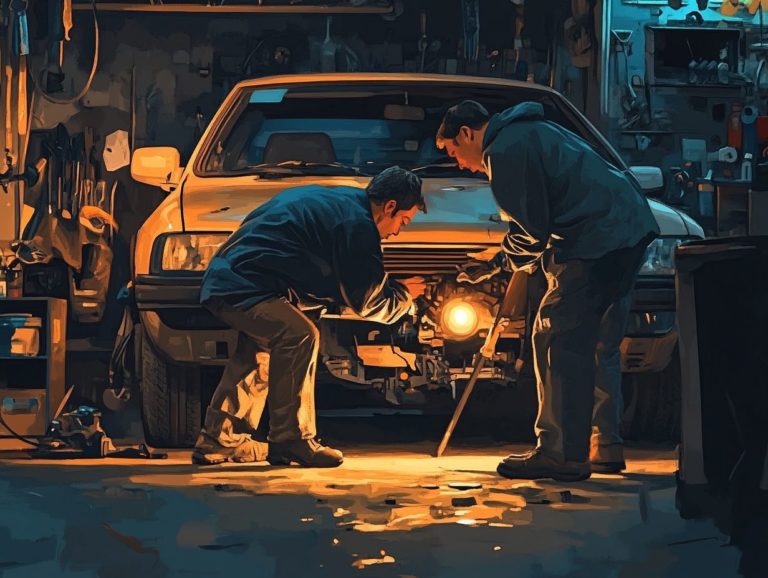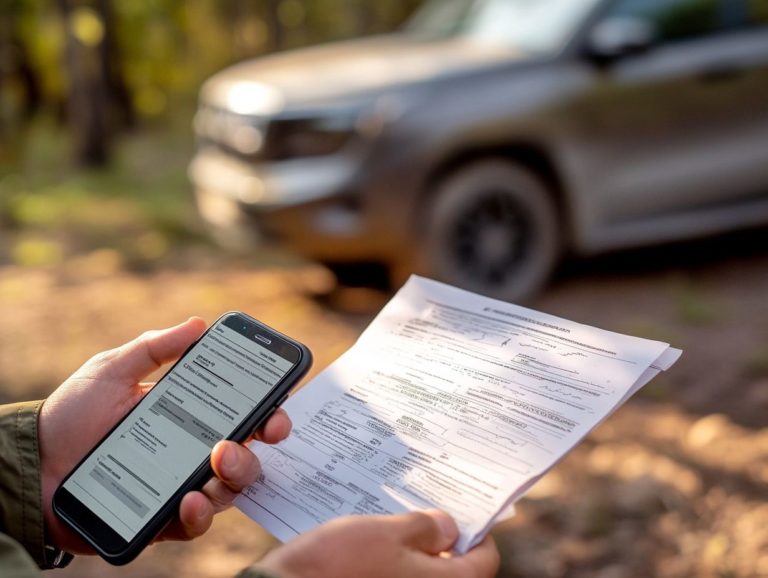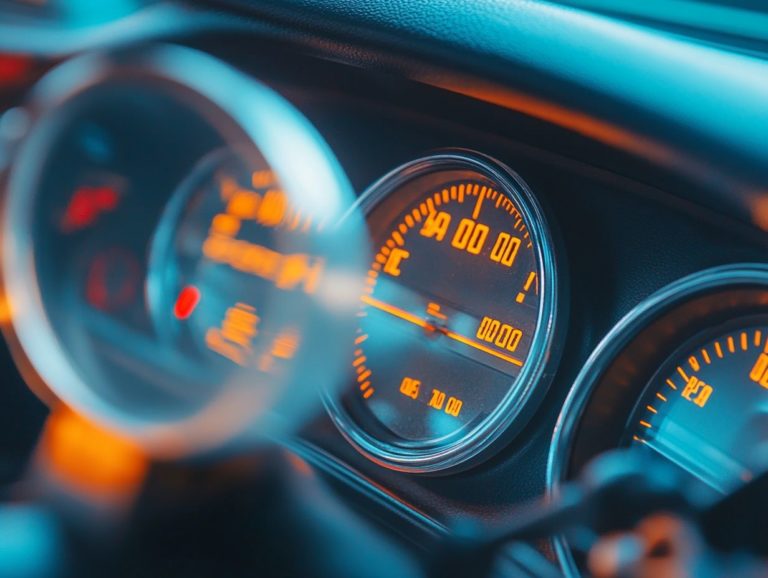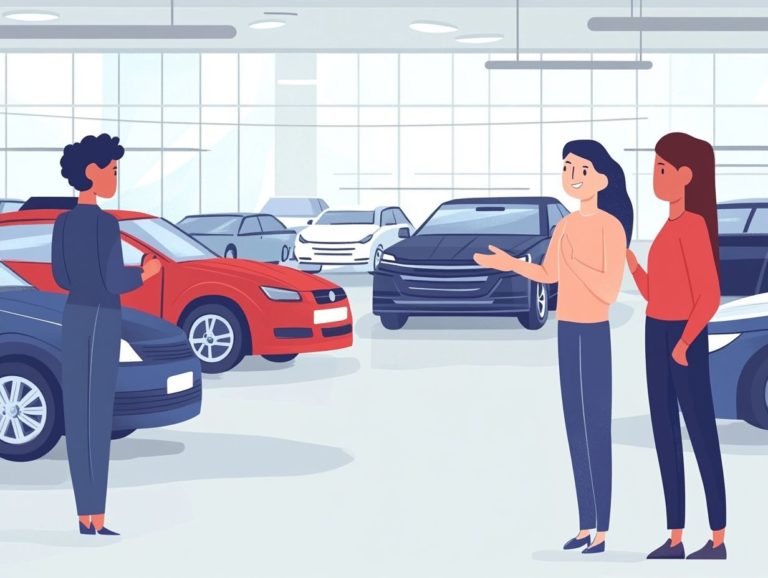The Benefits of Getting a Pre-Purchase Inspection
When you re contemplating a significant investment like a home or vehicle, it s essential to ensure you re making a well-informed decision.
A pre-purchase inspection can shield you from unexpected headaches and expenses in the future. This comprehensive guide will lead you through what a pre-purchase inspection involves, its critical role in revealing potential issues, and what you can expect during the process.
Discover the various types of inspections available, learn how to select a trustworthy inspector, and gather practical tips to maximize the value of your inspection.
Jump in and take charge of your buying decisions!
Contents
- Key Takeaways:
- What is a Pre-Purchase Inspection?
- Why You Should Get a Pre-Purchase Inspection
- What to Expect During a Pre-Purchase Inspection
- Types of Inspections Available
- How to Choose a Reliable Inspector
- Cost and Timeframe of a Pre-Purchase Inspection
- Tips for Making the Most of Your Pre-Purchase Inspection
- Frequently Asked Questions
Key Takeaways:
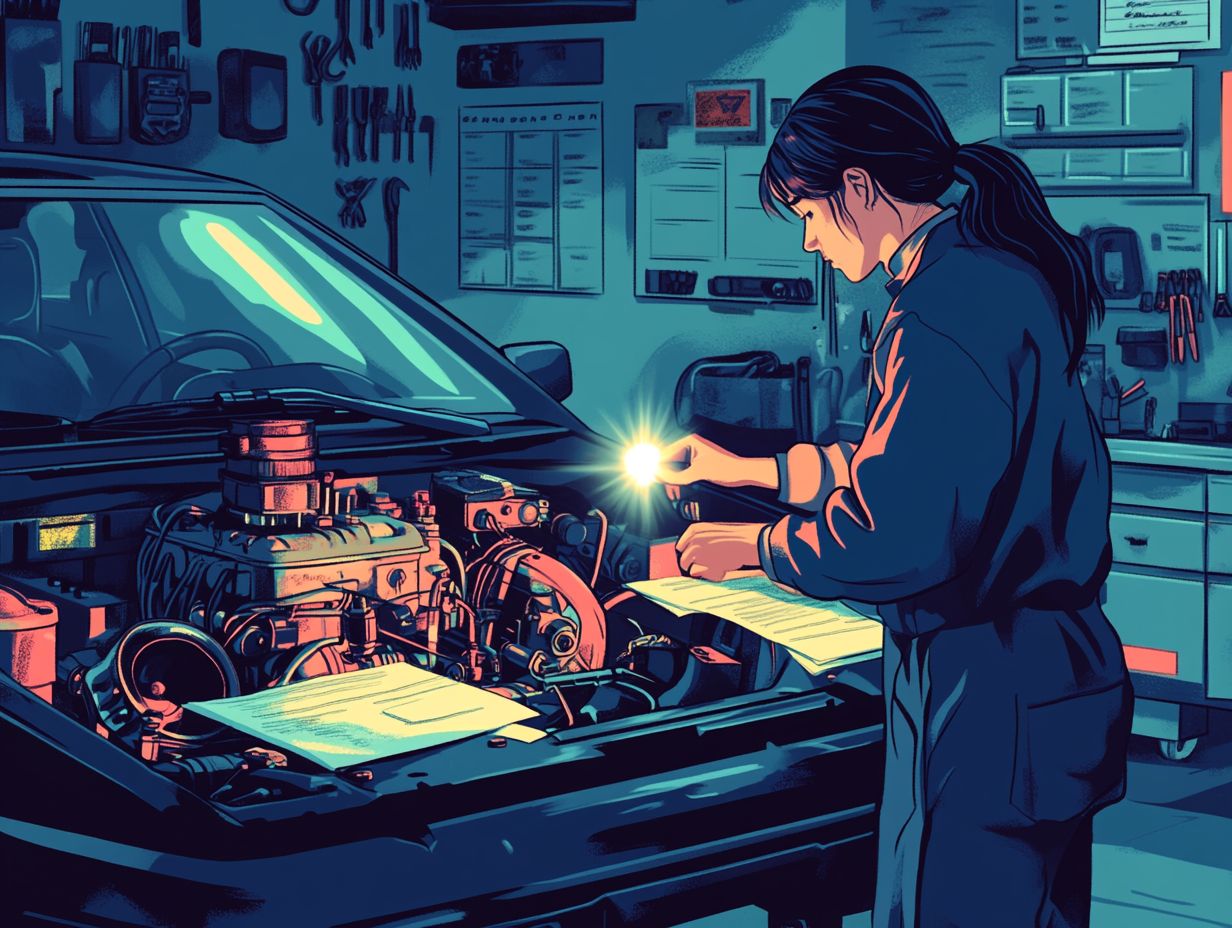
- A pre-purchase inspection helps identify potential issues with a property before purchasing, saving you from unexpected expenses later on.
- It is important to choose a reliable inspector for a thorough and accurate inspection. Look for qualifications, experience, and communication skills when selecting an inspector.
- Proper preparation and communication with the inspector can help you make the most of your pre-purchase inspection and ensure a smooth process.
What is a Pre-Purchase Inspection?
A pre-purchase inspection (PPI) serves as a thorough check of a used car, conducted by a certified technician. This evaluation is designed to reveal hidden problems and mechanical issues before you make a commitment to purchase.
By addressing safety concerns and identifying potential repairs, the PPI gives you the power to make informed decisions and negotiate more favorable terms.
Engaging in this inspection grants you valuable insights into the vehicle’s condition, ultimately delivering peace of mind as you navigate the buying process.
Definition and Purpose
The essence of a pre-purchase inspection hinges on its purpose: to offer a detailed evaluation of a vehicle by a certified technician, ensuring you are fully informed about the condition of the car you plan to buy.
This check reveals mechanical issues before you buy, uncovering hidden damages or safety concerns that might escape notice during a brief test drive or casual visual inspection.
By pinpointing these factors early, you can sidestep unexpected repair expenses and make decisions that align with your financial situation.
A pre-purchase inspection makes your vehicle safer and protects your investment, highlighting the importance of a pre-purchase inspection that instills confidence in your choice and provides peace of mind throughout the buying journey.
Why You Should Get a Pre-Purchase Inspection
Securing a pre-purchase inspection is crucial when you’re in the market for a used car. It helps reveal any hidden problems or mechanical issues that could result in unexpected costs down the line.
This inspection not only ensures that you’re investing in a dependable vehicle but also enhances your bargaining position with the seller. By grasping the true condition of the car, you give yourself the power to make informed decisions, ultimately saving you money on potential repairs.
Why Spotting Issues Matters
Identifying potential issues during a pre-purchase inspection is essential, as it finds problems that you might miss. For a comprehensive approach, refer to the ultimate pre-purchase car inspection guide, granting you peace of mind as a buyer.
This proactive measure goes beyond merely revealing defects; it also significantly contributes to cost savings. By identifying necessary repairs in advance, you can negotiate more favorable terms or sidestep unexpected expenses later on.
Safety concerns are paramount and should never be overlooked. Unaddressed issues can lead to hazardous situations, potentially putting lives at risk.
A comprehensive inspection enhances your overall buying experience and gives you the knowledge required to make informed decisions, ensuring that your investment is secure and reliable.
What to Expect During a Pre-Purchase Inspection
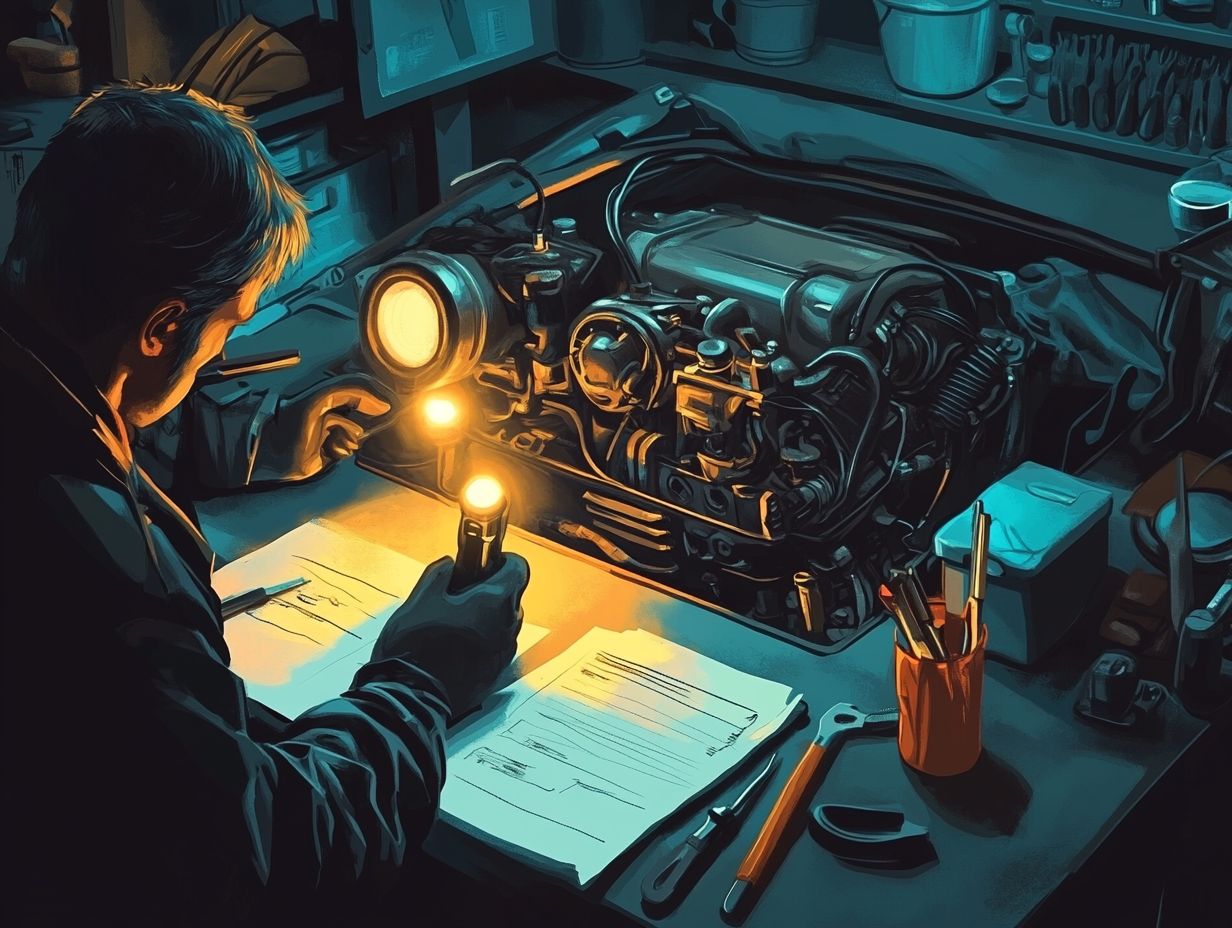
During a pre-purchase inspection, you can anticipate a comprehensive process carried out by a qualified technician. This includes both a meticulous visual inspection and a test drive, ensuring no detail is overlooked.
The detailed condition report aims to evaluate various mechanical systems and components while also reviewing diagnostic codes to uncover any hidden issues. Knowing what to expect will empower you as you navigate this crucial step in your used car buying journey.
Don’t risk your investment get your pre-purchase inspection today!
Step-by-Step Process
The Pre-Purchase Inspection starts with a careful visual check of the vehicle. You ll also have diagnostic tests to see how well it performs.
This initial inspection is crucial as it helps you find obvious issues like rust, dents, or misaligned panels.
After the visual check, a detailed checklist is used. This checklist ensures that nothing is missed and keeps a clear record of each component’s condition.
The inspector may use tools to check the vehicle s electronic systems. You will get a full understanding of the car s condition, empowering you to make smart choices.
Types of Inspections Available
When choosing a Pre-Purchase Inspection, you can pick between a full inspection and a basic inspection. Each type caters to different needs based on the vehicle and your preferences.
A full inspection is thorough and conducted by a certified technician. It provides a complete overview of the vehicle s health.
A basic inspection is quicker and focuses on essential areas. Knowing the differences helps you make the best choice for your situation.
Full Inspection vs. Basic Inspection
A full inspection gives a comprehensive look at the vehicle. It meticulously examines all major components.
Choosing a full inspection means you receive detailed insights, including checklists for everything from the engine to the brakes. This thorough look can uncover hidden issues, giving you peace of mind.
Though it requires more of your time and money, the information gained is invaluable.
On the other hand, a basic inspection is quicker and typically less expensive. However, it might miss critical details, leading to costly repairs later.
Weigh your immediate needs against long-term implications to make a smart decision.
How to Choose a Reliable Inspector
Choosing the right inspector can make a huge difference! Look for an experienced automotive technician who can provide a thorough vehicle evaluation.
Check for qualifications like ASE certification and read positive reviews of their services. This ensures you’re working with someone knowledgeable.
A qualified inspector will offer a detailed report and help you avoid common pitfalls when buying a used car.
Qualities to Look for
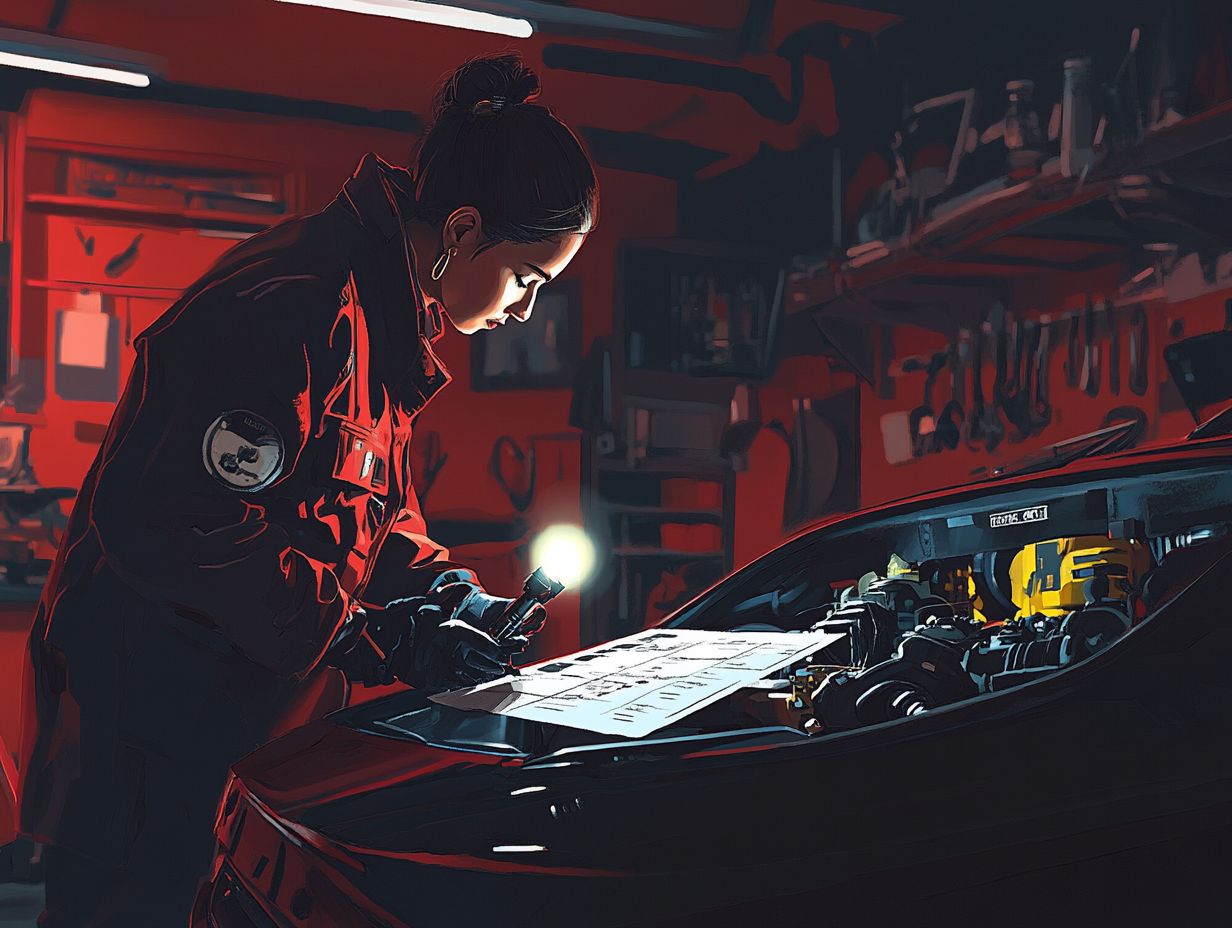
When searching for an inspector, prioritize key qualities: ASE certification, extensive experience, and positive customer reviews. These qualities show their expertise in vehicle evaluations.
A certified inspector not only brings professionalism but also technical skills needed to identify potential issues. Their experience helps spot common problems in different vehicle models.
Collectively, these qualities ensure the inspector is dedicated to a thorough inspection, giving you peace of mind to make informed decisions.
Cost and Timeframe of a Pre-Purchase Inspection
The cost and time for a Pre-Purchase Inspection vary widely. Factors include the type of inspection, inspector expertise, and vehicle location.
A thorough condition report often comes with a higher price tag due to the in-depth evaluation required. The inspection itself may take anywhere from one hour to several.
By grasping these factors, you can effectively budget and plan your inspection to align seamlessly with your purchasing timeline.
Factors that Affect Pricing and Turnaround Time
Several factors influence the pricing and turnaround time of a Pre-Purchase Inspection, including the vehicle’s make and model, the complexity of the inspection, and the inspector’s location.
If you’re considering a luxury or exotic vehicle, be prepared for specialized tools and expertise, which can drive up both costs and time. The vehicle’s age also plays a role; older models often present more issues to inspect, potentially extending the process and increasing fees.
If your inspector is located in a densely populated area, you might encounter longer waiting periods and higher prices due to market dynamics.
All of these variables can significantly impact your decision-making process as you weigh overall value against anticipated costs and time commitments.
Tips for Making the Most of Your Pre-Purchase Inspection
To truly maximize the benefits of your Pre-Purchase Inspection, it’s essential to engage in thorough preparation and communicate effectively with the inspector about your specific concerns.
Ahead of the inspection, gather the vehicle’s maintenance history. This context will assist the inspector in focusing on areas that may warrant closer scrutiny. By doing so, you ensure that all possible unseen problems are uncovered, allowing you to make a well-informed purchasing decision.
Preparing for the Inspection and Communicating with the Inspector
Preparing for the inspection means gathering key documents, such as the vehicle’s maintenance history, and clearly communicating your concerns and expectations to the inspector.
Additionally, compile relevant information on past repairs, warranties, and any modifications made to the vehicle.
Be sure to highlight any specific worries you have, like potential leaks or unusual sounds, so the inspector can focus on those aspects during their evaluation.
Establishing a solid line of communication with the inspector can yield more insightful feedback, giving you the opportunity to ask questions or seek clarification on any findings.
A collaborative approach not only builds trust but also enhances the overall inspection experience, ultimately empowering you to make informed decisions.
Frequently Asked Questions
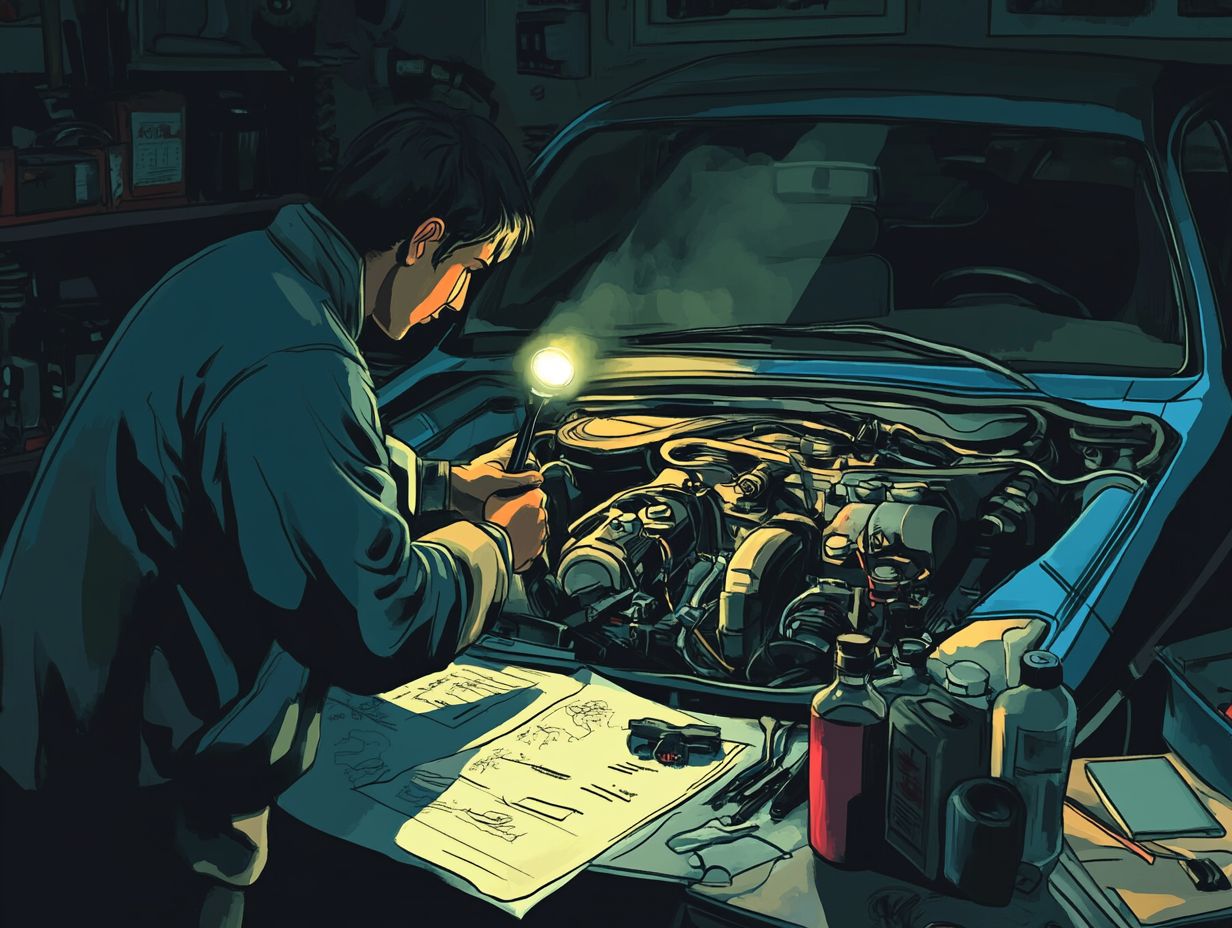
What is a pre-purchase inspection?
A pre-purchase inspection is a thorough examination of a property or vehicle done by a professional to assess its condition and identify any potential issues before a purchase is made.
What are the benefits of getting a pre-purchase inspection?
There are several benefits to getting a pre-purchase inspection, including peace of mind, cost savings, and avoiding potential safety hazards, as highlighted in our guide on understanding the importance of a pre-purchase inspection.
How does a pre-purchase inspection save me money?
A pre-purchase inspection can save you money by identifying hidden or potential issues with the property or vehicle, making it wise to consider the benefits of getting a second opinion on inspections. This approach allows you to negotiate a better purchase price or avoid costly repairs in the future.
Who should get a pre-purchase inspection?
Anyone looking to purchase a property or vehicle, whether a first-time buyer or a seasoned investor, can benefit from getting a pre-purchase inspection. Understanding the importance of a professional car inspection can ensure they are making a sound investment.
What does a pre-purchase inspection cover?
A pre-purchase inspection typically covers a comprehensive examination of the property or vehicle’s structure, systems, and components, including electrical, plumbing, HVAC, and more.
Can I attend the inspection before buying?
Yes, most inspectors welcome buyers to attend the inspection before buying. It’s a great chance to ask questions, understand the property’s or vehicle’s condition, and share any concerns you might have.
Don’t miss this opportunity to get valuable insights!


